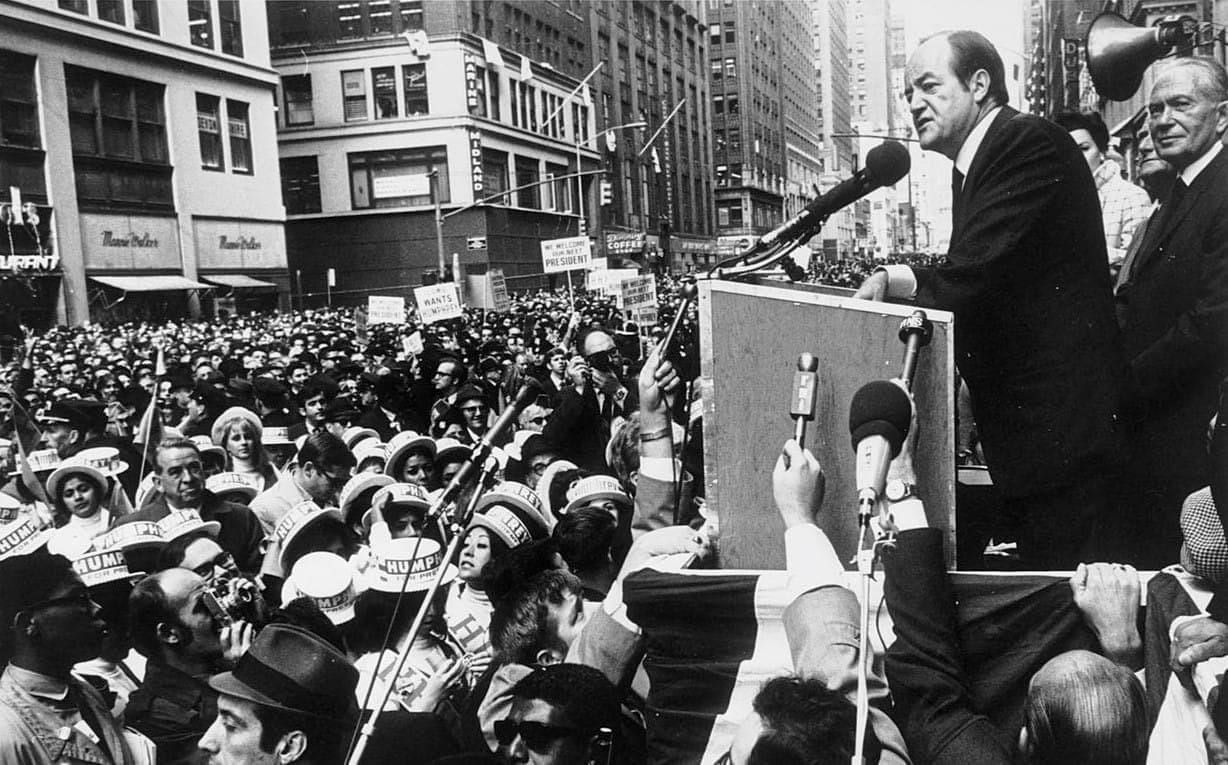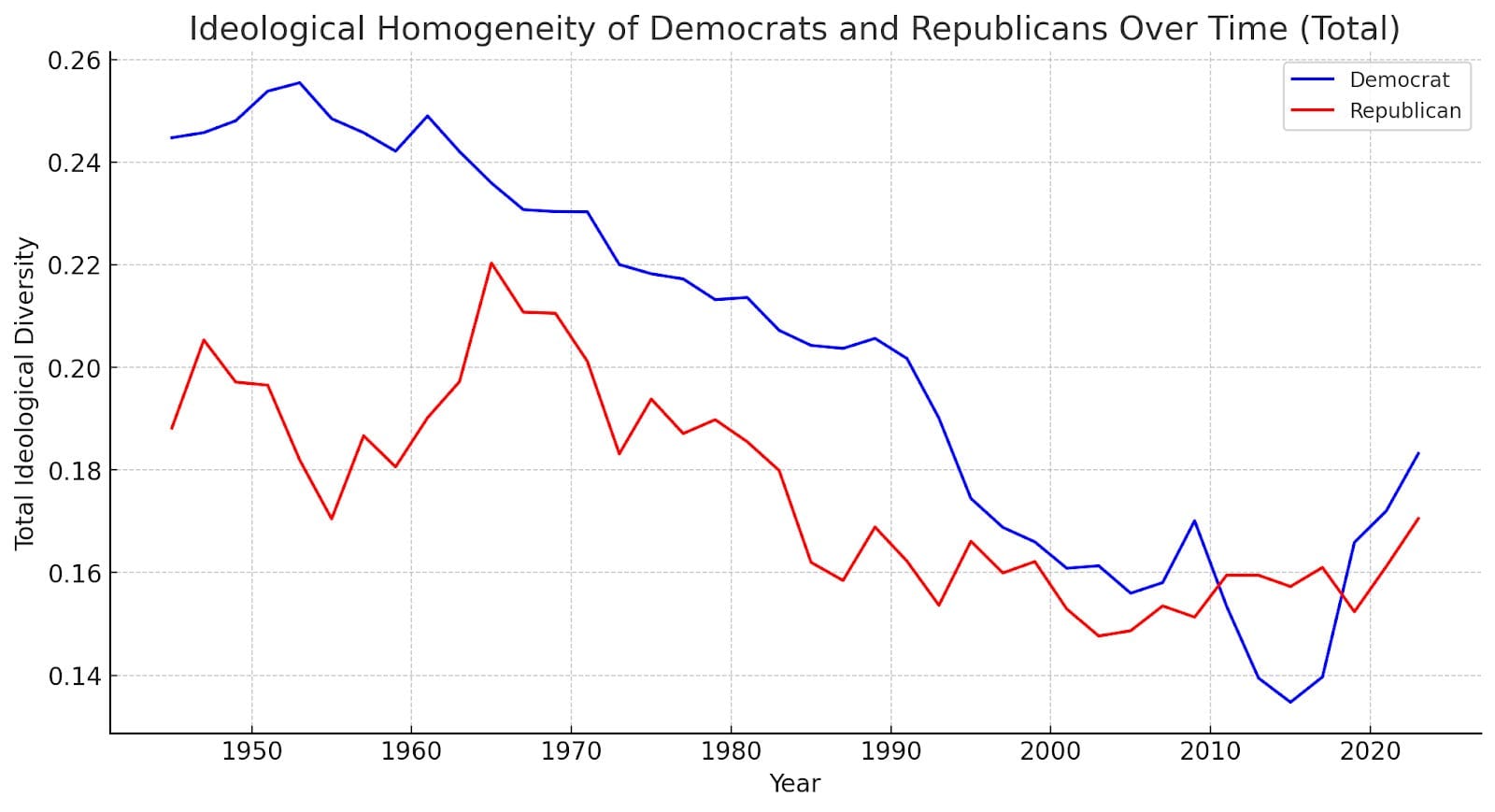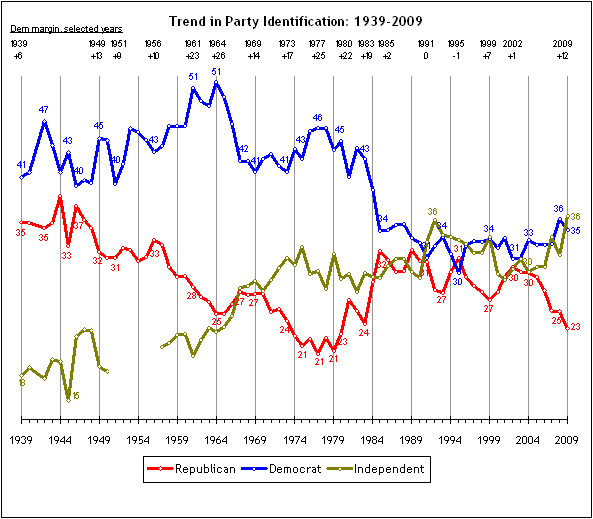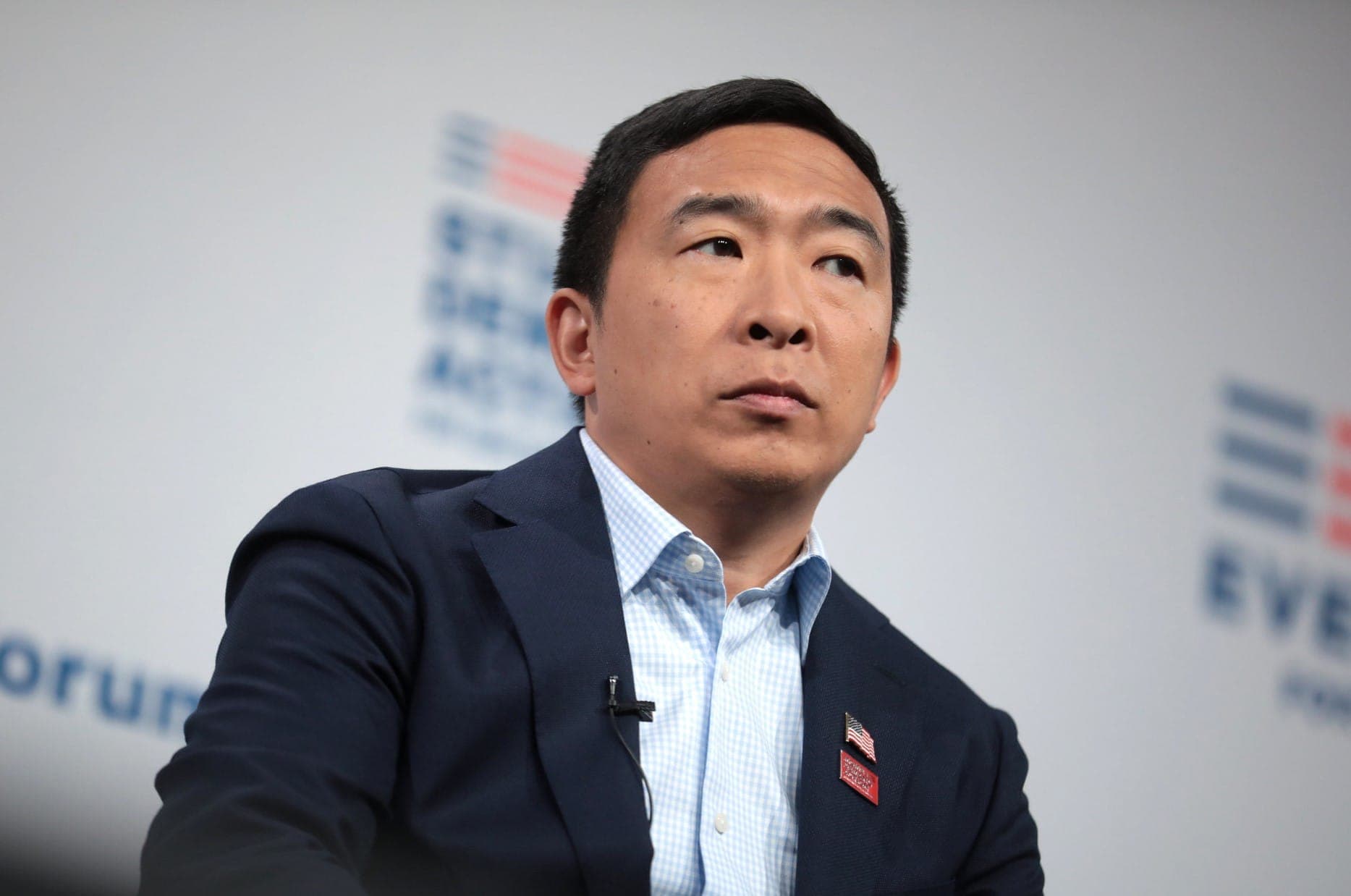Democrats Have Replaced an Unpopular Incumbent Before; It Didn't Work Out

Editor's Note: The following op-ed from author Dan Sally originally published on his website and has been republished on IVN with permission from the author. Photo Source: Kheel Center on Flickr.
The 90-minute faceplant that was Joe Biden’s performance in the CNN presidential debate did little to dispel notions that he might be too old to serve another term as president. Footage of Jill Biden escorting him down the two steps of the debate stage didn’t help either.
Since then, Democrats such as Massachusetts Governor Maura Healey have asked Biden to reconsider his candidacy, others have called for him to step down outright, and donors have promised to withhold funds from the party until he drops out.
The party hasn’t faced a crisis like this since 1968, when - like Biden - Democratic incumbent Lyndon Johnson faced an uphill climb to reelection due to unpopular policy decisions and a third-party candidate who threatened to siphon away Democratic voters. Johnson’s decision to back out of the race was followed by intraparty strife over who would be the next nominee, the assassination of RFK Sr, a brokered convention that led to the nomination of Vice President Hubert Humphrey, and a crushing loss to Richard Nixon.
So some in the Democratic Party can’t be blamed for thinking the best option is to stay the course.
But has the Democratic Party changed since 1968 and are they taking the wrong lessons from history? Yes and yes.
2024 Democrats: More Homogenous
1968 marked the beginning of the end of FDR’s New Deal coalition - an eclectic group that included active members of the NAACP and active members of the Ku Klux Klan. Keeping this in mind, it’s surprising it took until the 1968 convention for riots to break out
Needless to say, the Democratic Party of 1968 was ideologically diverse, with fault lines over the issue of civil rights and the Vietnam War dividing the party.
The chart below illustrates this, showing how often members of either party voted differently on bills put before Congress (the higher the number, the more often members voted against members of their own party):

We can see here that, at the time of the 1968 convention, the Democratic Party was much more ideologically diverse than it is today. While a little difference of opinion is healthy in politics, sharp divisions within a party can pose a problem when faced with an existential crisis, such as who should serve as the nominee for president when the heir apparent drops out.
In the case of 1968, the party was sharply divided over the Vietnam War, with Eugene McCarthy being the standard bearer of the antiwar movement and incumbent Vice President Hubert Humphrey inheriting Johnson’s support amongst the prowar flank. After a contentious nominating process that included antiwar delegates walking out, Humphrey received the party’s nomination despite the fact he never campaigned in the primaries.
This ultimately led to some antiwar Democrats abstaining from the general election, contributing to Humphrey’s loss.
Given the ideological consistency of today’s party, it’s more likely the conversation will center around which candidate is more likely to win and that Democratic voters will line up behind whoever the nominee is. 1968 also provides a small warning to party insiders looking to anoint a successor without input from the base.
2024 Has a Different Third-Party Problem
Like today, the Democratic Party in 1968 saw one of its members defect to launch a rival presidential bid under a populist, anti-establishment platform. George Wallace’s campaign under the banner of the American Independent Party was geared toward working-class white voters who had become disenchanted with both major parties while taking a hardline pro-segregation position that appealed to Southern Democrats.
Unlike RFK Jr., Wallace had no intention of winning the presidency outright. His campaign focused on winning enough electoral votes so the election would be sent to the House of Representatives where he’d have greater negotiating power.
Wallace’s candidacy also clearly split the Democratic vote, which - in addition to being divided over Vietnam - was also divided on the issue of civil rights. In contrast, RFK Jr’s campaign is largely propelled by dissatisfaction with the two-party system and suspicion of institutions.
Polls indicate that, unlike Wallace, Kennedy would be more likely to pull likely Republican voters from Trump. In a race that will be decided in 6 states with razor-thin margins Kennedy’s impact will be more difficult to predict.
Many Voters Really Don’t Like Trump
While all of the attention on last week’s debate justifiably went to Biden’s poor performance, a poll conducted by the NYT and Siena College showed the number of voters who viewed Trump unfavorably grew from 52% to 55%, with a 5% increase in the number of respondents who viewed him “very unfavorably”.
It also can’t be understated that the power of the anti-Trump vote almost rivals that of the pro-Biden vote, with one poll showing 44% of Biden voters were casting ballots against Donald Trump, as opposed to 55% casting ballots for Biden.
While Nixon left the White House a historically unpopular figure, he had none of these problems in 1968. He narrowly lost the 1960 presidential election to Kennedy with a larger share of the popular vote than Trump won in either 2016 or 2020 and ran against Humphrey as a known political figure in an election with a strong anti-incumbent sentiment.
2024 Has More Independents
Possibly the biggest difference between 1968 and now is that there aren’t as many Democrats. In 1968, about 42% of Americans were Democrats, with Republicans totaling 27%, and the remaining third independent.

Polling by Gallup shows independents are now the largest voting bloc in the country, with Democrats and Republicans making up about half of all voters in total. Polling also shows a historically high number of candidates dislike both candidates, with one poll by Pew putting this number at 25% - the highest on record.
In this sense, one could argue replacing their candidate would be the best strategy for both parties.
In 1968, the Democrats Actually Held a Primary
The biggest, and most consequential, difference between 1968 and now is that Democrats had a legitimate primary contest under Johnson.
Over the course of his presidency, Johnson saw his approval rating drop from a high of 80% in 1963 to around 40% in the early days of 1968. Johnson wasn’t convinced to abandon his bid for reelection until late March when a surprising showing by his anti-war challenger, Eugene McCarthy, in the New Hampshire primary and the entrance of RFK Sr into the race made his path to the nomination bleak.
While Joe Biden hasn’t seen the same precipitous drop in his approval ratings over the past four years, that’s mainly due to the fact he wasn’t as popular as Johnson to begin with.
As questions about his ability to serve a second term emerged and inflation dragged down his popularity, Biden decided the best way to put these questions to bed would be to rearrange the primary calendar to his advantage.
When the DNC announced the South Carolina Primary would be moved ahead of Iowa and New Hampshire, the stated reason was that South Carolina better represented the modern-day Democratic Party. Aside from the fact the Deep South isn’t the first place that comes to mind when most of us think of the Democratic Party, it didn’t go unnoticed that this was the first state Biden won in 2020 and one where he was still particularly strong.
Moving South Carolina to the front of the Democratic primary calendar gave Biden a head start and dissuaded any serious challengers from running. As a result, Biden never had to prove his ability to keep up with the vigorous schedule of a national campaign nor his ability to appear more coherent than Donald Trump on the debate stage.
The Lesson of 2024
Like 1968, we have a Democratic incumbent with sinking popularity due to unpopular policies.
Unlike 1968, today’s Democratic Party lacks any serious ideological divisions that would make it difficult to unite around another nominee. They also face an equally unpopular Republican opponent who failed to win over 47% of the popular vote in his two prior presidential bids.
It would be an overstatement to say it was the Democrats’ race to lose, and an understatement to say they faced long odds.
The party’s path to the White House has been made harder by an outdated candidate selection process that’s too easy for party insiders to rig in their favor and an incumbent president who was all too willing to rig it.
This system made sense in 1968 when almost half of all voters were registered Democrats. In an era where independents outnumber Democrats two to one, the party needs to cast a wider net.
The Democrats have no good options heading into this election, but they can ensure they don’t make the same mistake in 2028 by holding an open primary. Unlike closed primaries, where only party members can vote, open primaries allow all voters of all parties to take part.
This produces candidates who can draw the most enthusiasm from general election voters, as opposed to those who appeal most to the party’s base.
This same tactic was used by Republicans in the 1960s to attract white Southern Democrats who were disenchanted with their party’s pivot towards the civil rights movement. With Republicans now moving towards closed primaries Democrats could gain a competitive advantage in a contest where candidates need to appeal to independent voters.
While the question of Biden’s future is the most urgent for Democrats, the larger question is why they can’t seem to find someone with broader appeal than a Republican candidate who so many voters view unfavorably. The voters would tell them, if they only asked.








